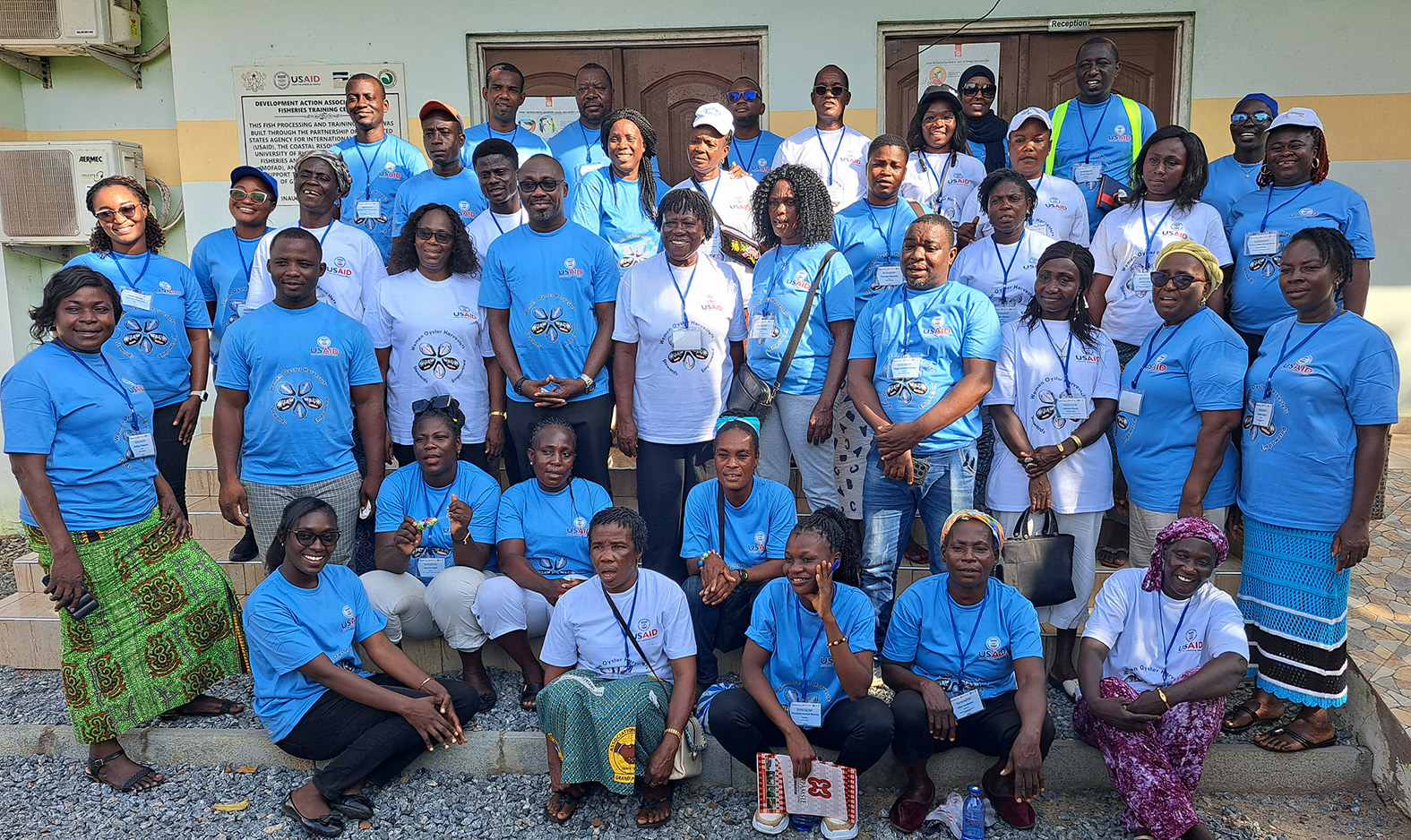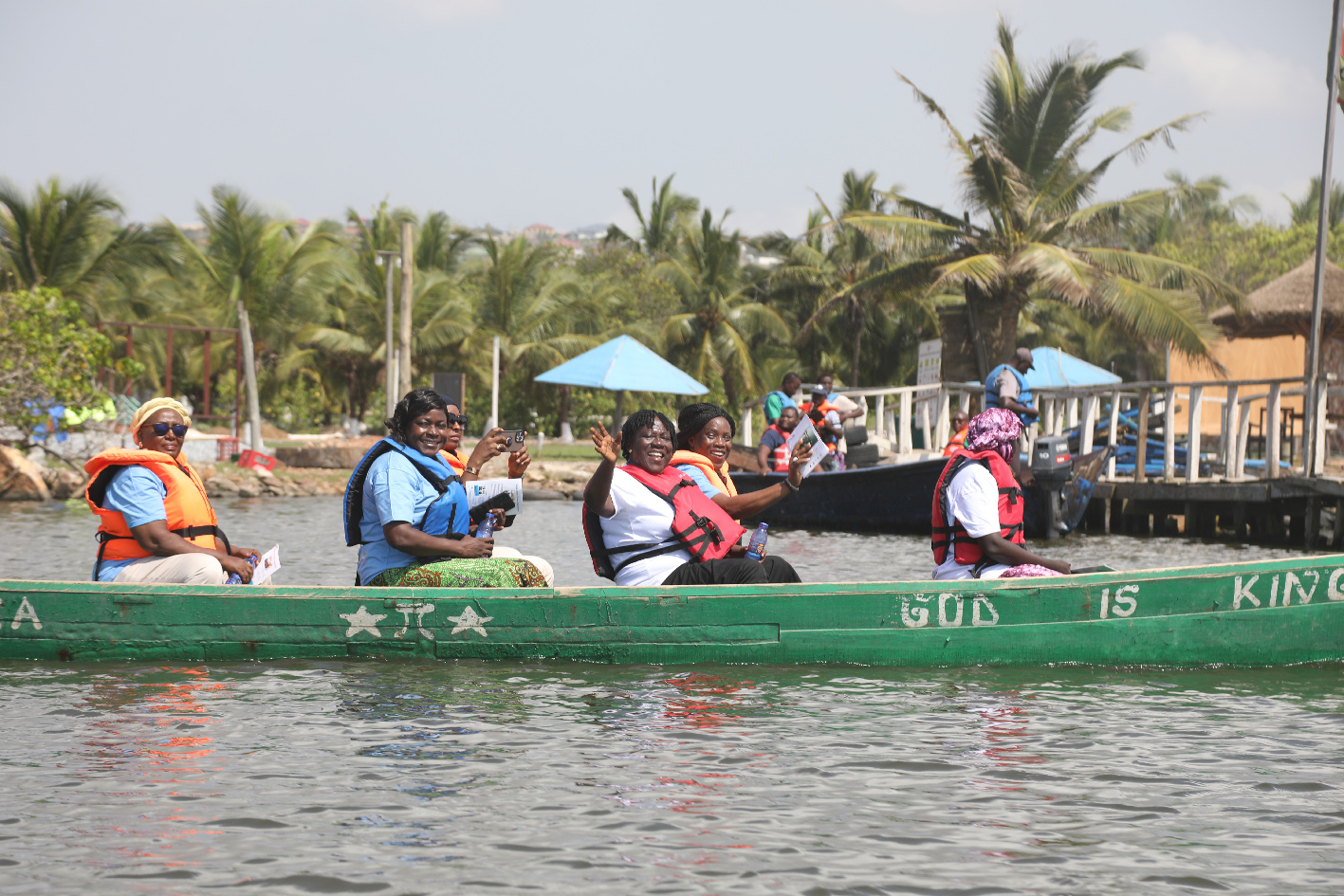Country
Profiles
Country
Networks
Country
Associations
- Date
West Africa Regional Peer Exchange on Shellfisheries Management Held in Ghana
By WA Shellfish Hub
The West Africa Shellfish Knowledge and Outreach Hub (Shellfish Hub) at the Centre for Coastal Management, University of Cape Coast, under the USAID-funded Women Shellfishers and Food Security Project , organised a four-day regional shellfisheries peer exchange study tour for shellfisheries stakeholders in West Africa. The event was held in Ghana from 28th - 31st October 2024.
The peer-learning exchange was organised as part of the operational activities of the Shellfish Hub, with the aim of promoting the scaling of shellfisheries co-management through knowledge sharing and peer exchange among women shellfish harvesters (resource users) and other critical shellfisheries stakeholders including managers, government and development agencies, and researchers from across West Africa. Participating countries included Sierra Leone, Côte d'Ivoire, Benin, Togo, Nigeria, The Gambia, and Ghana.
The programme involved presentations, round-table discussions and field tours. Topics discussed centred on women-led sustainable shellfisheries co-management practices, which are gaining immense traction for the unique food security, biodiversity and ecological conservation, and livelihoods support benefits from their implementation. Participants also discussed emerging outcomes of shellfisheries research outputs and outreach materials produced by the project and partners of the Shellfish Hub.
These discussions focused on promoting sustainable shellfisheries with a gender focus and encouraging stewardship of mangrove and estuarine ecosystems associated with shellfisheries. The integration of the landscape-seascape nexus in food systems, community-driven shellfish aquaculture, and value addition to shellfisheries products, were highlighted.
It is anticipated that the peer-exchange will challenge the 45 participating stakeholders from across the West Africa region to become agents of change and foster a community of practice for the co-management of shellfish resources in their communities and beyond.The Shellfish Hub strengthens this effort and provides a platform for regional cohesion toward a vibrant shellfisheries sector in West Africa. Feedback from the participants was inspiring, and underscored the importance of peer-learning! Shared lessons were amazing, and the participants outlined three priority actions for their return to their home countries.
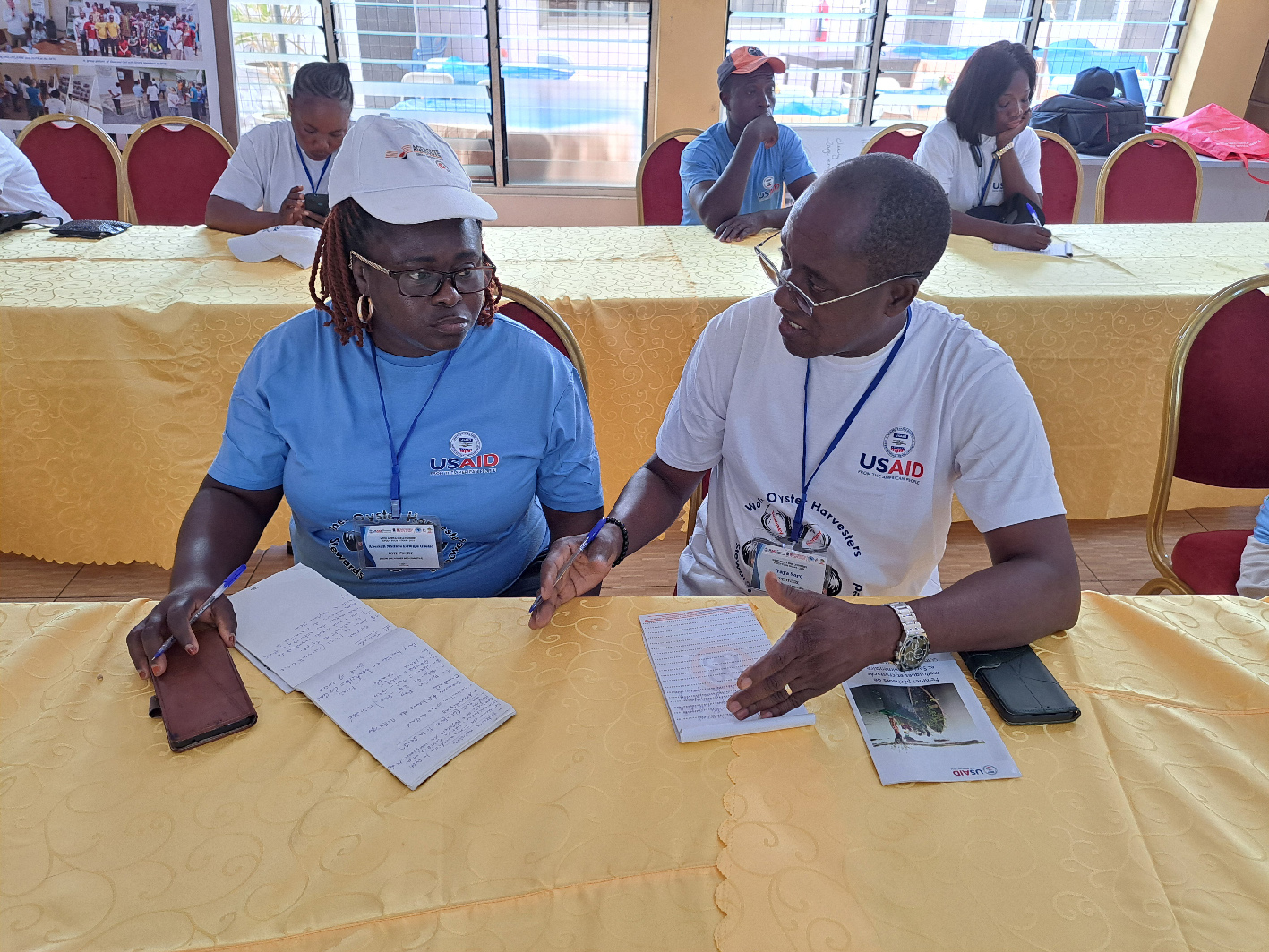
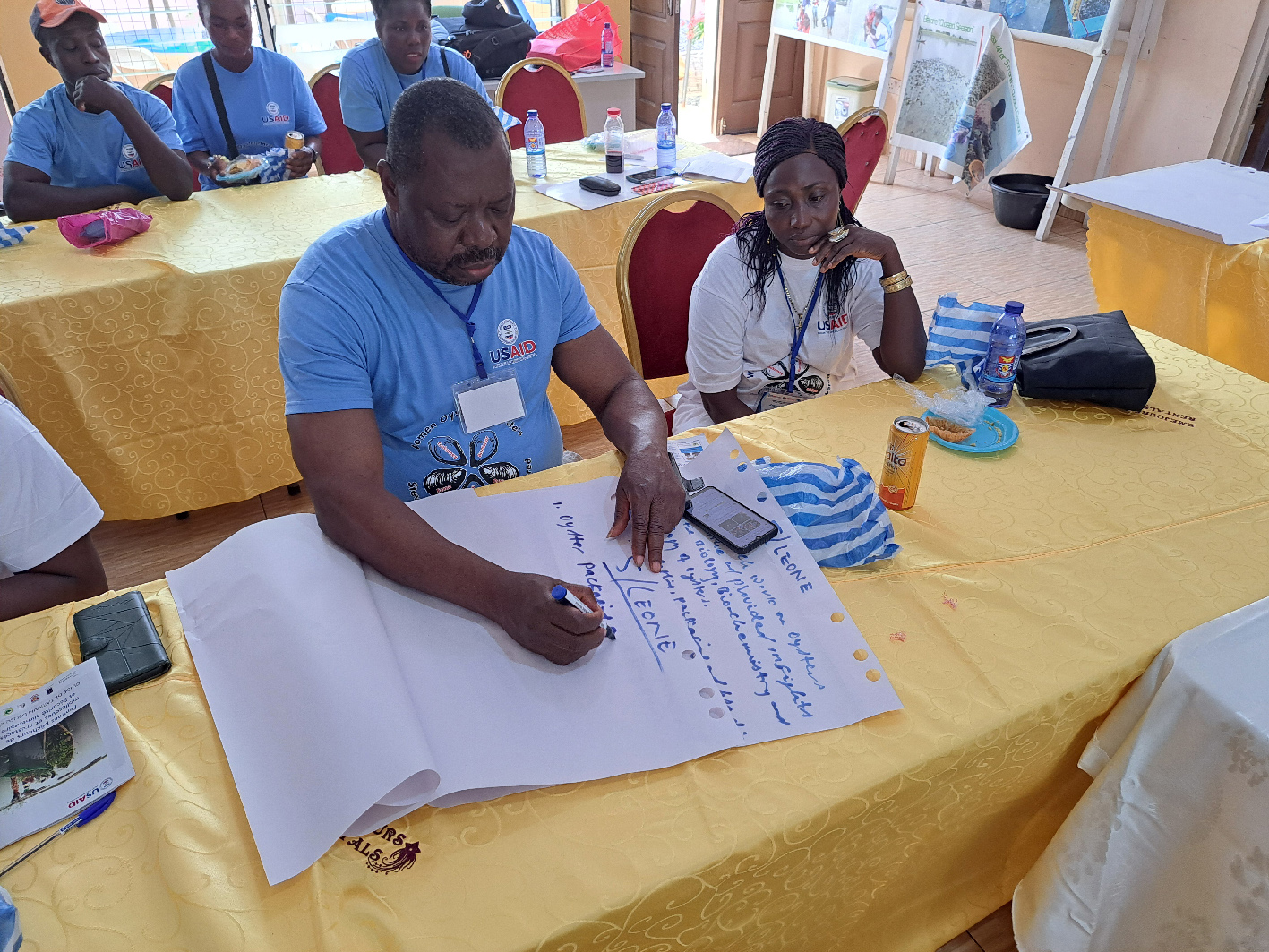
A summary of key lessons were as follows:
Women-led co-management and sustainable shellfish harvesting practices. Participants recognised the effectiveness of women-led shellfisheries co-management practices in the Gambia and Ghana. They noted how these initiatives have helped foster biodiversity and ecological conservation, community livelihoods and food security while empowering women as resource managers. They appreciated an emphasis on a regional gender-focused stewardship as crucial for sustaining shellfish resources and associated ecosystems in West Africa.
Integration of mangrove and estuarine ecosystems in shellfishery management. Participants of the study tour highlighted their enhanced understanding of the critical role of mangrove and estuarine ecosystems in supporting shellfisheries. They noted the importance of integrating ecosystem-based approaches, focusing on the landscape-seascape nexus within shellfishery management to enhance biodiversity and resilience of these habitats.
Value addition and market expansion for shellfish products. Participants shared their enlightenment on the potential for value addition through post-harvest processing and product development as an avenue for economic and livelihood empowerment. They appreciated that improving value addition and market access could significantly enhance income for shellfish harvesters, particularly women, and boost the shellfisheries sector's contribution to food security.
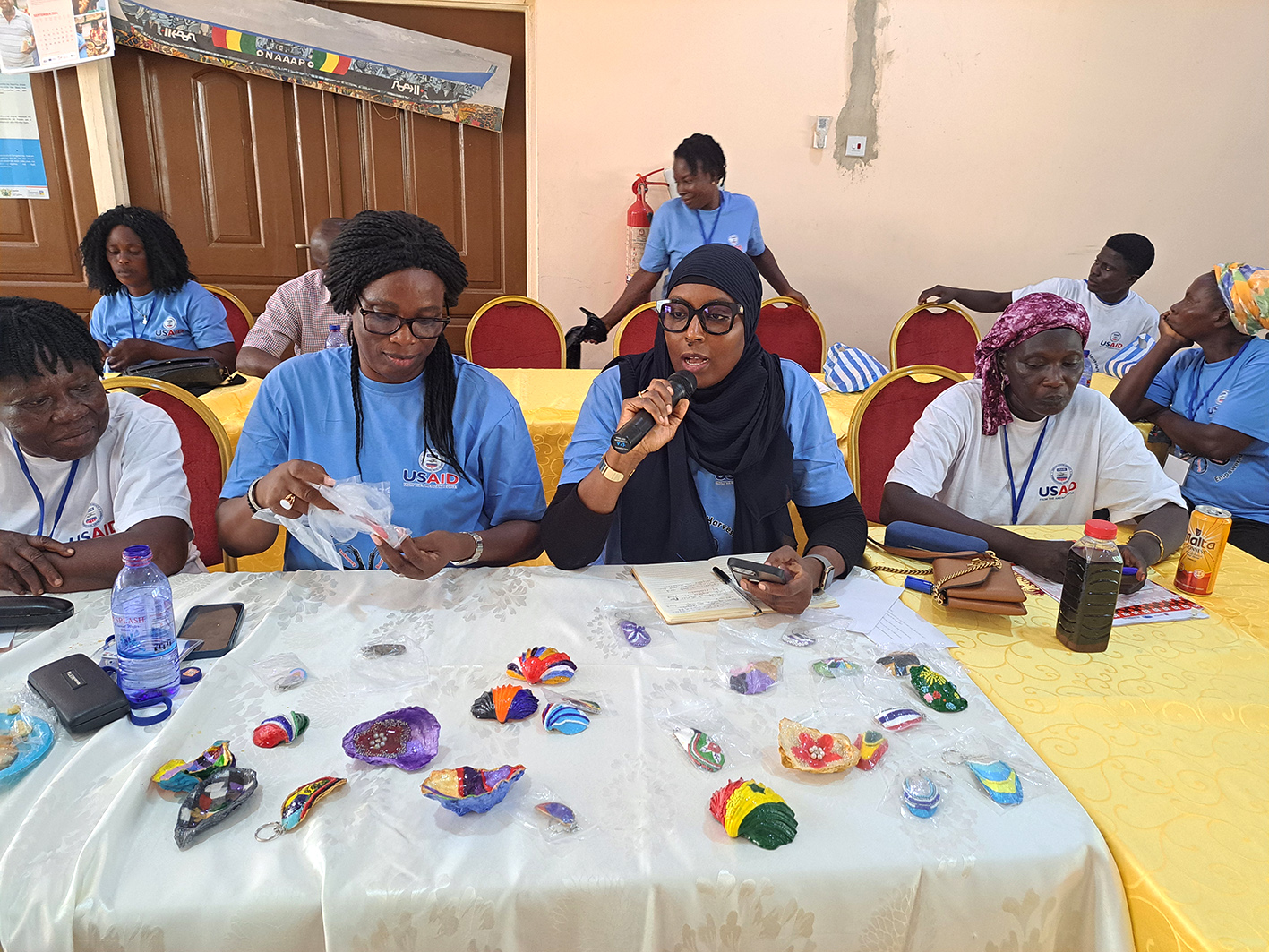
Following from the lessons learned, participants outlined an action plan revolving around five main pillars. These were as follows:
Coordination. The need to replicate the country level multi-stakeholder shellfisheries coordination body, Oyster Stakeholder Advisory Committee (OSAC), in The Gambia. This should be linked to the West Africa Shellfish Network (WASNet) for synergy and knowledge sharing among participating states.
Governance and Management. Scaling rights-based shellfisheries co-management across coastal West Africa and scaling sustainable mangrove management (replanting, protection) for carbon credit, reef enhancement will have long-lasting benefits to shellfisheries conservation and livelihoods for women and men.
Women empowerment. In addition to the promotion of rights-based co-management approaches led by women shellfishers, enhancing the literacy and numeracy capacity of the women harvesters will facilitate uptake of organizational capacity strengthening for women shellfisher associations with co-management roles, as well as the uptake of occupational enhancement training and opportunities. Conducting training in occupational safety including swimming and water-survival techniques, and use of safe equipment and apparel for shellfish harvesting.
Promoting shellfisheries. Introducing oyster festivals like that currently being done in Sierra Leone will encourage the development of a variety of recipes. This will promote value addition and potentially expand consumption to new consumers and broaden the market base.
Enhancing livelihoods. Continuous development of oyster culture techniques has the potential to bolster an aquaculture industry to meet future demand. With future increase in production (and even with the current), there is potential for value addition to the shell by-product. Other alternative food portfolio and income sources are also needed to reduce over reliance on wild harvests.
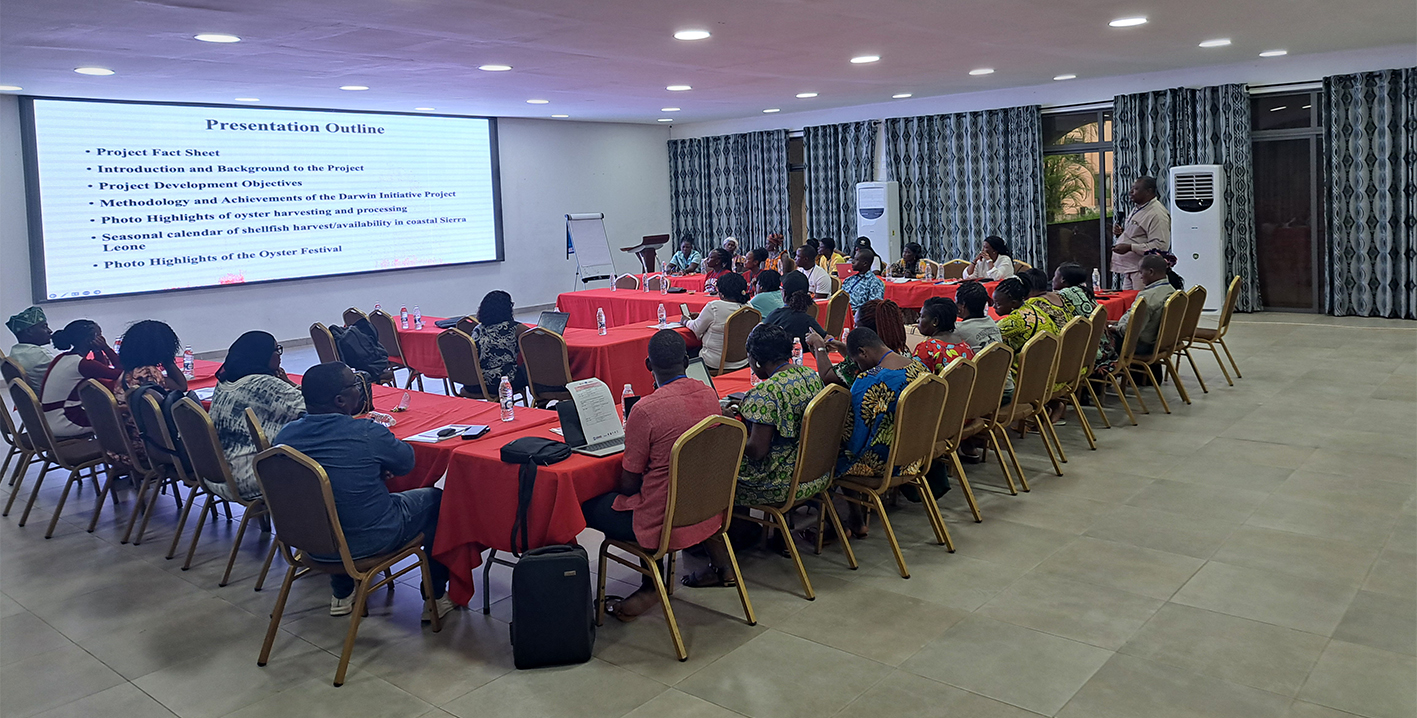
Participating organisations and women-led shellfisher groups included, Try Women Oyster Association (the Gambia), FISH4ACP (the Gambia), University of Sierra Leone (Sierra Leone), Bonthe Women Oyster Association ( Sierra Leone), Densu Oyster Pickers Association (Ghana), Development Action Association (Ghana), Narkwa Oyster Harvesters Association (Ghana), Agbo-Zegue (Togo), Women Shellfishers (Togo), University of Abomey-Calavi (Benin), Association des femmes productrices d'huitres du Bénin (Benin), University of Ibadan (Nigeria), Women Shellfishers (Nigeria) and Assini shellfishers and COMATPPA (Côte D’Ivoire).

